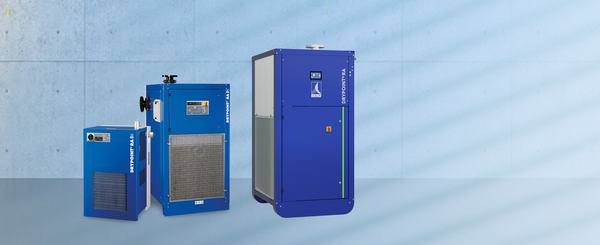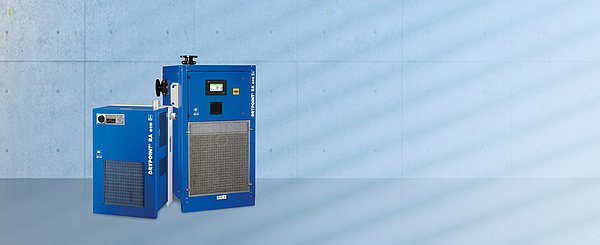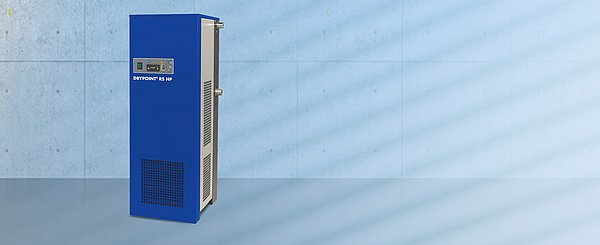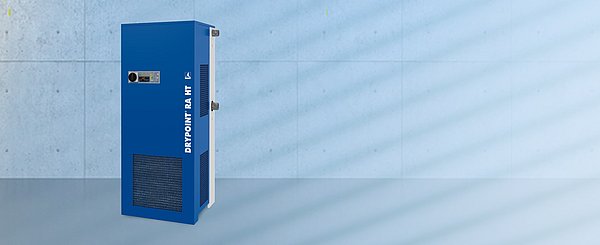Refrigeration dryers
Efficient moisture removal for optimal performance Energy-efficient drying for sustainable savings Reliable and durable design


The right refrigeration dryer for every application
Choosing the right compressed air refrigeration dryer
Selecting the appropriate compressed air refrigeration dryer is essential for the efficiency and reliability of your systems. We provide tailored solutions for every application:
- Energy-saving dryers: Minimize operating costs and energy consumption.
- Process reliability: Ensure consistent air quality for sensitive operations.
- High-pressure dryers: Dependable performance for high-pressure demands.
- High-temperature dryers: Optimal efficiency even under high temperatures.
Our experts are here to provide personalized advice to help you find the ideal solution for your specific needs. Contact us today for more information.
Frequently asked questions about refrigeration drying
Refrigeration drying is a compressed air treatment process in which the air is cooled to condense and remove moisture. This is done by using a refrigerant that cools the air to a low temperature, whereby the water contained in the air is condensed out and separated.
Drying the compressed air is important to ensure that no moisture or condensation gets into the compressed air, which could affect the performance of compressed air tools, machines or processes. Moisture in the compressed air can lead to corrosion, damage to components and quality problems.
Refrigeration dryers are used in various industries, including the automotive, food and beverage, chemical, electronics and other sectors where dry compressed air is required for the operation of plant and machinery.
Refrigeration dryers are effective, reliable and relatively inexpensive compared to other drying processes. They offer constant pressure dew point performance regardless of ambient temperatures and have low energy consumption.
The efficiency of refrigeration drying depends on factors such as the operating temperature and humidity, the air flow rate, the quality of the refrigerant and the maintenance of the drying system.
Choosing the right refrigeration drying system depends on the size of the compressed air system, the required compressed air quality, the ambient temperature and other specific requirements. It is advisable to seek advice from a specialist to identify the most suitable system.
Inefficient drying of compressed air can lead to corrosion, production downtime, quality problems and increased operating costs. It is important to continuously monitor the compressed air quality in order to avoid such problems.



